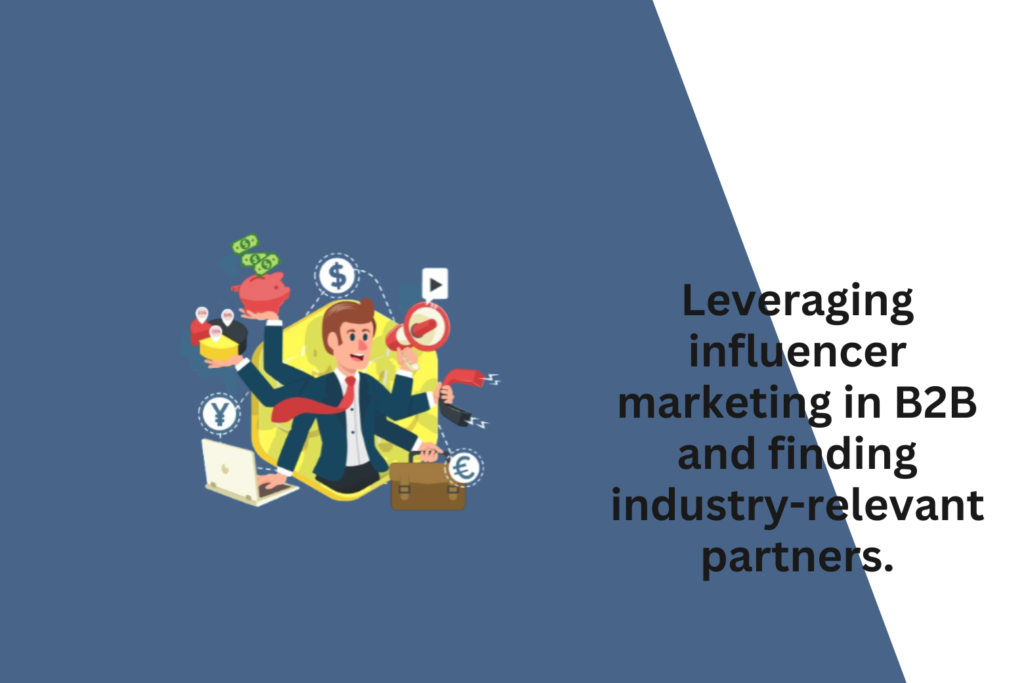
Influencer marketing can play a significant role in B2B marketing by helping you reach and engage with your target audience, establish credibility, and build trust. While influencer marketing is often associated with B2C, it’s becoming increasingly relevant in the B2B sector. Here’s how you can identify and partner with relevant industry influencers in the B2B space:
- Understand the Role of B2B Influencers:
- In B2B, influencers are typically experts, thought leaders, or professionals with industry knowledge and authority. They can include industry analysts, consultants, entrepreneurs, authors, or respected figures in your niche.
- Identify Your Target Audience:
- Define your ideal B2B customer personas and understand their pain points, challenges, and interests. This will help you identify influencers who align with your audience.
- Research Influencers:
- Use social media, industry publications, and Google searches to identify potential influencers. Look for individuals who have a strong online presence, share valuable insights, and engage with your target audience.
- Evaluate Influencer Credibility:
- Consider an influencer’s reputation, expertise, and the quality of their content. Assess their audience engagement and the impact they’ve had on their industry.
- Consider Relevance:
- Ensure that the influencer’s niche and content align with your B2B offerings. Relevance is key to effective influencer partnerships.
- Engagement and Social Reach:
- Examine an influencer’s social media following, website traffic, and engagement metrics. A significant following is beneficial, but it’s equally important that they engage with their audience.
- Analyze Content Quality:
- Assess the quality, depth, and consistency of an influencer’s content. High-quality content reflects positively on your brand.
- Check for Alignment with Values:
- Ensure that the influencer’s values and principles align with your brand’s. A misalignment can harm your reputation.
- Reach Out and Build Relationships:
- Connect with potential influencers through social media or email. Start by engaging with their content and building a relationship before discussing partnerships.
- Collaborate on Content: – Partner with influencers to create content that is valuable to your target audience. This can include guest blog posts, co-authored eBooks, webinars, podcasts, or videos.
- Sponsored Content and Reviews: – Collaborate with influencers on sponsored content, product reviews, or endorsements. This can help you reach their audience and gain their trust.
- Events and Webinars: – Invite influencers to participate in industry events, webinars, or panel discussions. Their presence can lend credibility to your initiatives.
- Leverage LinkedIn: – LinkedIn is a particularly effective platform for B2B influencer marketing. Connect with and engage industry influencers, and consider featuring them in your content.
- Measure and Analyze Results: – Use analytics tools to measure the impact of your influencer collaborations. Monitor metrics like website traffic, lead generation, and conversions attributed to influencer-driven content.
15. Long-Term Relationships: – Building long-term relationships with influencers can be more beneficial than one-off partnerships. Invest in nurturing these connections.



